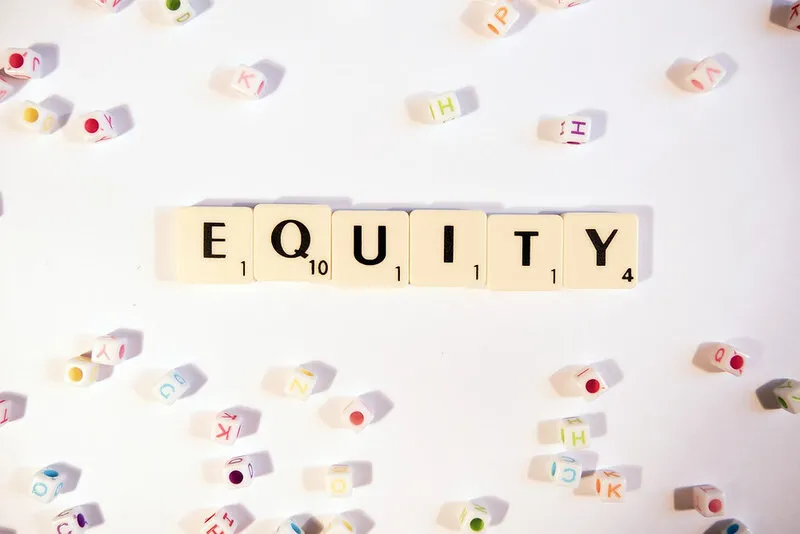1. What is equity?
Equity is the amount or value of assets that a business receives from investors, shareholders or joint venture members. This is a long-term source of capital for businesses, does not require interest payments like capital loans and is often used to create resources for businesses to go into business. Total equity will be calculated by subtracting liabilities.
Equity is considered a sustainable and long-term source of funding for the business, and is also the basis for determining the value of the business. Each capital contributing member has the right to enjoy the same benefits in the management of business operations, profits and accept the consequences in case the business enterprise loses.
If the business goes bankrupt or ceases to operate, the owner's equity will be preferred to use to repay the debt. After repaying the debt, the remainder will be divided among the shareholders in proportion to their initial capital investment.
 Owner's equity is the source of capital that helps a business get into business
Owner's equity is the source of capital that helps a business get into business2. Composition of equity
Depending on the business model, equity includes many different components:
- Shareholder's capital: Accumulated from the company's shareholders, this amount is clearly stated in the company's charter.
- Operating profit: The remaining profit after tax deduction and not yet distributed to shareholders or joint venture members.
- Enterprise funds: Investment and development funds or reserve funds, formed at a rate not exceeding legal regulations.
- Share premium: Is the capital gain from the issuance compared to the current par value.
- Asset valuation difference: revaluation of fixed assets, inventory, investment real estate,...
- Exchange rate difference: If the company deals in foreign currency, the currency item is denominated in foreign currency, this capital will also be taken into account.
 Components of equity
Components of equityAll of these sources of capital play an important role in assessing a company's financial value. However, shareholders' equity and operating profit are the most important sources of capital and account for the highest proportion of the enterprise's equity. As shareholders further invest in the business, the equity of the business will increase significantly.
3. Current forms of equity
Currently, there are many forms of equity that are applied depending on the type of business of the business. Using the right form of equity will help businesses optimize benefits and enhance competitiveness in the market. Types of equity include:
- State capital: All operating capital is invested by the state.
- Limited Liability Company: Funding is provided by the company's co-founders.
- Joint Stock Company: Capital is contributed from shareholders or business owners.
- Partnership company: An enterprise with at least two general partners contributing capital.
- Sole Proprietorship: Provided by the business owner and held liable with the assets of the individual or entity.
- Joint venture: Capital comes from domestic and foreign partners.
4. Formula for calculating equity
Understanding how equity is calculated is the first thing a business needs to do when going into business. The formula for calculating equity will help businesses assess their financial position and make appropriate business decisions. The formula for calculating a company's equity is:
Equity = Total assets of the business - total liabilities.
In there:
- Total assets of a business include short-term assets and long-term assets. Short-term assets include bank deposits, cash, convertible assets such as gold, silver,... Long-term assets include financial investments, real estate, fixed assets, receipts and a few others.
- Liabilities include payments to sellers, taxes, payments to the State, wages, internal payments, financial loans, etc.
For example, if a business has assets such as a stock investment of VND6 billion, plant equipment costs of VND4 billion, inventory valued at VND2 billion, and manufacturing company revenues of VND3 billion. copper. Meanwhile, the enterprise has a loan of 3 billion dong to buy tools for the factory, 2 billion dong for the packaging supplier and 400 million dong for employees. So, the company's equity will be calculated by the formula: (6 + 4 + 2 + 3) - (2 + 0.2 + 2) = VND 9.6 billion.
5. Distinguish between equity and charter capital
According to Clause 34, Article 4 of the Enterprise Law 2020:
“Charter capital is the total value of assets contributed or pledged to contribute by members and owners when establishing a partnership or limited liability company. Is the total par value of shares sold or purchased at the time of establishment of the joint stock company.”
Equity and charter capital are two important economic concepts in the financial management of an enterprise. Although both are related to capital, however, the two concepts have different characteristics. The table distinguishing equity and charter capital below will help readers better understand this issue:
| | Equity | Authorized capital |
| Nature | The capital that owners contribute to the business, including capital from business results | Is the total amount that shareholders contribute to the business upon its establishment, determined in the business license and cannot be changed easily. |
| Ownership object | The State, organizations and individuals contribute capital to establish an enterprise or individuals or organizations hold shares | Established by an organization, individual or committed to contribute capital |
| Formation mechanism | Formed from capital sources contributed by the State, individuals and enterprises or supplemented from annual profits. | Formed on the basis of capital contributed by individuals, organizations or committed to contribute capital for a certain period of time and recorded in the charter of the enterprise. |
| Characteristic | Not a debt because of capital contribution from investors, shareholders and business results. | Considered a debt of the company if the business goes bankrupt |
| Meaning | Shows the increase or decrease of capital sources of enterprises and investors | Reflecting the capital structure in the business is the basis for dividing risks or profits with investors |
Hope the above information of Vietnam Manpower has helped you have an overview of “ What is equity ?”. Understanding equity helps managers easily make the right decisions, determine the financial capacity of the business, thereby making appropriate business strategies.












Replies to This Discussion